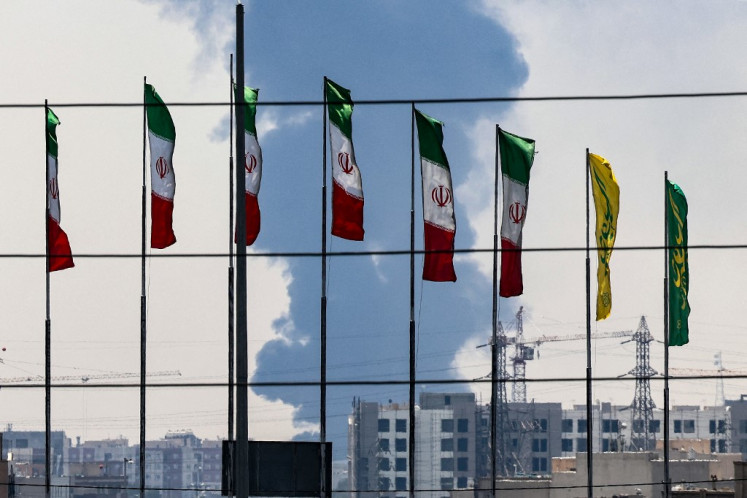Popular Reads
Top Results
Can't find what you're looking for?
View all search resultsPopular Reads
Top Results
Can't find what you're looking for?
View all search resultsSampoerna Agro aims for 8% capacity increase
Publicly listed plantation firm PT Sampoerna Agro (SGRO) expects more palm oil production next year, as its eighth factory in West Kalimantan is scheduled for completion and will boost the company’s oil palm processing capacity by 8 percent
Change text size
Gift Premium Articles
to Anyone

P
ublicly listed plantation firm PT Sampoerna Agro (SGRO) expects more palm oil production next year, as its eighth factory in West Kalimantan is scheduled for completion and will boost the company’s oil palm processing capacity by 8 percent.
Sampoerna Agro’s annual processing capacity is expected to reach 2.16 million tons of fresh palm fruit bunches (TBS) by the second half of next year, an 8 percent increase from 2 million tons this year.
“We maintain our commitment to long-term investment. A part of that commitment is the new oil palm factory in West Kalimantan, which has reached 30 percent completion,” Sampoerna Agro president director Marc Louette said at a press conference in the Indonesia Stock Exchange (IDX) building on Monday.
The new factory, estimated to cost Rp 100 billion (US$7.5 million) to Rp 120 billion in investment, would have an hourly capacity of 30 tons of palm fruit, which is mostly processed into a biodiesel mix and vegetable oil, and sold at local markets.
Sampoerna Agro head of investor relations Michael Kesuma said a big part of the firm’s palm oil goes to biodiesel, amid increasing demand for the alternative fuel since 2015.
The first biodiesel mix introduced was B15, a mix of 75 percent diesel and 15 percent palm oil substance, and will be increased to B30 in 2025 to comprise 30 percent palm oil substance, providing a good outlook for palm oil demand, Michael said.
With such a positive projection, Sampoerna Agro is committed to allocating 2,000 to 4,000 hectares of its land for planting new oil palm, rubber and sago trees per year. It now has 167,000 ha of plantations, 82 percent of which is dedicated to palm oil and 10 percent to rubber.
However, the firm still faces challenges in proving that its business is environmentally friendly after its subsidiary, PT National Sago Prima, was fined Rp 1 trillion last year in a forest fire case.
As for this year, its seven existing factories are expected to at least run at 80 percent capacity, equaling to 1.6 million tons of fresh fruit bunches due to an increase in harvest. This is projected to boost crude palm oil (CPO) production by 20 percent to 360,000 tons. Each ton of palm fruit produces 200 to 220 kilograms of CPO.
Last year, the company processed 1.45 million tons of palm fruit, or 72.5 percent of capacity.
“This year, TBS harvest is expected to increase because our plants are at the peak of maturity. The average age of our own plants is 11 years old, and weather has been friendly in the first half. This situation is expected to continue in the second half,” Michael said.
As of June, Sampoerna Agro’s revenue increased by 49.5 percent year on year (yoy) to Rp 1.6 trillion, and net profit surged to Rp 174.15 billion, a recovery from Rp 84.2 billion in net losses in the same period last year.
The positive performance came from increases in both the price and sales volume of palm oil and kernel oil. Kernel oil is used as mixture in oleo chemical and soap. Palm oil is a major contributor to the revenue at Rp 1.2 trillion, while kernel oil contributed Rp 240.97 billion.









